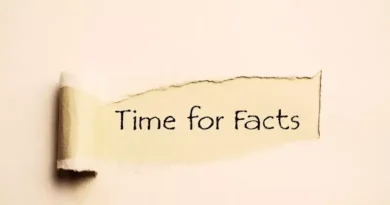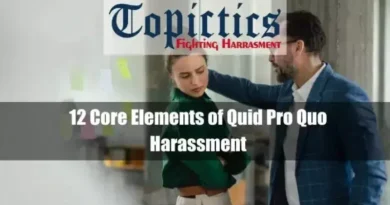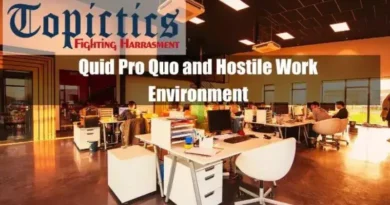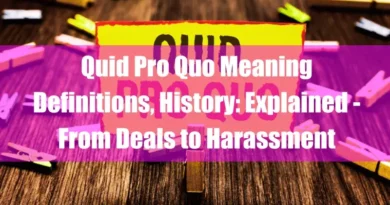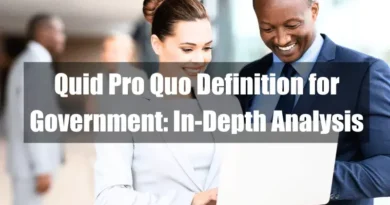Quid Pro Quo Definition in the U.S. History: In-depth Analysis
Quid pro quo, meaning “something for something,” denotes an exchange of reciprocal benefits and has significantly impacted U.S. history. Initially used in the 16th century for medicinal substitutions, it later described political patronage, notably in Andrew Jackson’s spoils system.
It was central to scandals like the 1920s Teapot Dome, where officials accepted bribes for oil leases, and Watergate in the 1970s, involving Nixon’s cover-up efforts.
In the 1980s, it featured in the Iran-Contra affair, with secret arms sales to fund Nicaraguan Contras. The Supreme Court’s 2016 ruling in McDonnell v. United States narrowed its legal definition of corruption cases.
Quid pro quo also defines illegal acts of sexual harassment under Title VII and Title IX and scrutinizes business practices for fairness. This concept underscores the need for transparency and accountability in U.S. governance and law.
Takeaways
Here are the Key Takeaways from the Article “Quid Pro Quo Definition in the U.S. History”:
| Key Points |
|---|
| Quid pro quo, meaning “something for something,” originated in the 16th century within apothecaries, describing the substitution of medicines, and later expanded to encompass reciprocal exchanges in broader contexts. |
| It became politically significant in the U.S. through the spoils system under Andrew Jackson’s presidency, where loyalty was rewarded with government positions, entrenching patronage and corruption. |
| Major scandals like the Teapot Dome (1921-1923), involving secret oil leases in exchange for bribes, and the Watergate scandal (1972-1974), where Nixon’s administration traded political favors for loyalty, highlighted quid pro quo’s role in undermining public trust and spurred reforms like the Federal Election Campaign Act. |
| The Iran-Contra Affair (1980s) exposed quid pro quo in foreign policy, with arms sales to Iran funding Nicaraguan Contras, bypassing congressional oversight. |
| Modern legal cases, including McDonnell v. United States (2016), redefined the scope of corruption, narrowing what constitutes an official act. |
| The Trump-Ukraine impeachment (2019-2020) centered on allegations of withholding aid for political investigations, further spotlighting quid pro quo in executive power. |
| In sexual harassment, it refers to demanding sexual favors in exchange for job or academic benefits, prohibited under Title VII and Title IX. |
| Additionally, in business law, quid pro quo involves mutual exchanges of value but faces scrutiny when tied to insider trading or unethical practices, as seen in landmark legal cases. |
Early Usage and Political Patronage
16th Century:
Initially, the term quid pro quo was employed in the medical field by apothecaries who would substitute one medicine for another. By the 18th century, its meaning had broadened to describe any reciprocal exchange.
The Spoils System:
The spoils system refers to the practice where political leaders reward their supporters with government jobs and contracts. This system became prominent in the 19th century, leading to widespread patronage and corruption. Such exchanges were often seen as a quid pro quo, where political support was traded for government positions and favors.
Andrew Jackson’s Presidency:
President Andrew Jackson’s administration is famously associated with the spoils system. Jackson defended this practice, arguing that it democratized government by rotating officeholders. However, it also entrenched quid pro quo arrangements in American politics, where loyalty and support were exchanged for public office.
The Teapot Dome Scandal (1921-1923)
Background and Key Figures:
The Teapot Dome scandal is one of U.S. history’s most notorious political corruption. It involved Secretary of the Interior Albert B. Fall, who leased Navy petroleum reserves at Teapot Dome, Wyoming, to private oil companies without competitive bidding in exchange for substantial personal gifts and loans.
Events Leading to the Scandal:
In 1921, Fall orchestrated the transfer of naval oil reserve lands to the Department of the Interior. He then secretly leased these lands to oil tycoons Harry F. Sinclair of Sinclair Oil and Edward L. Doheny of Pan American Petroleum, receiving bribes amounting to more than $400,000.
Investigation and Outcomes:
The scandal came to light due to the Senate’s investigative efforts, spearheaded by Senator Thomas J. Walsh. Fall was eventually convicted of accepting bribes, becoming the first former U.S. Cabinet official to be imprisoned for crimes committed while in office.
Impact on Public Trust and Reforms:
The Teapot Dome scandal significantly eroded public trust in government institutions. It led to reforms to increase transparency and reduce corruption, including establishing more stringent oversight and regulatory measures for government transactions.
The Watergate Scandal (1972-1974)
Overview of the Scandal:
The Watergate scandal began with a break-in at the Democratic National Committee headquarters at the Watergate office complex and escalated into a major political scandal involving President Richard Nixon’s administration. The subsequent cover-up efforts by the administration led to a series of abuses of power.
Quid Pro Quo Elements:
Elements of quid pro quo emerged as the Nixon administration attempted to manipulate political outcomes and offer favors in exchange for loyalty or silence. For example, there were instances where political support and campaign contributions were exchanged for political favors and influence.
Legal Proceedings and Outcomes:
The scandal resulted in President Nixon’s resignation under the threat of impeachment. Several administration officials were convicted of crimes related to the cover-up, including obstruction of justice and abuse of power.
Changes in Campaign Finance Laws:
In response to Watergate, significant changes were made to campaign finance laws, including the enactment of the Federal Election Campaign Act amendments in 1974. These reforms aimed to increase transparency and limit money’s influence in politics.
The Iran-Contra Affair (1980s)
Background and Key Figures:
The Iran-Contra Affair was a political scandal during the Reagan administration, involving senior U.S. officials secretly facilitating the sale of arms to Iran, which was under an arms embargo. Despite congressional prohibitions, the proceeds were used to fund Contra rebels in Nicaragua.
Arms Sales and Contra Funding:
The quid pro quo in this scandal involved selling arms to Iran in exchange for the release of hostages held by Hezbollah, followed by using the profits to support the Contras. Key figures included National Security Advisor John Poindexter and Lieutenant Colonel Oliver North, who orchestrated the operation.
Investigations and Convictions:
The affair was uncovered in 1986, leading to multiple investigations. Several officials were convicted on charges related to the scandal. However, many convictions were later vacated on technical grounds or pardoned by President George H.W. Bush.
Long-term Impact on Foreign Policy:
The Iran-Contra Affair had a lasting impact on U.S. foreign policy, leading to increased scrutiny and limitations on covert operations. It also highlighted the dangers of bypassing legislative oversight and the importance of transparency in government actions.
Modern Legal Interpretations
McDonnell v. United States (2016):
In the landmark case McDonnell v. United States, the Supreme Court addressed the limits of what constitutes an official act under federal corruption laws. Former Virginia Governor Bob McDonnell was convicted of accepting over $175,000 in gifts and loans from businessman Jonnie Williams in exchange for promoting a dietary supplement. The central question was whether McDonnell’s actions, such as setting up meetings and hosting events, counted as “official acts.”
Supreme Court’s Decision:
The Supreme Court unanimously overturned McDonnell’s conviction, ruling that his actions did not qualify as “official acts.” The Court defined an official act as a decision or action on a “question, matter, cause, suit, proceeding or controversy” involving formal government action. Setting up meetings, hosting events, or calling officials did not meet this definition.
Implications for Future Cases:
The decision narrowed the scope of what can be considered corruption under federal law, making it harder to prosecute politicians for quid pro quo arrangements. It emphasized that actions must involve a concrete, formal exercise of governmental power for them to be deemed corrupt.
Trump-Ukraine Impeachment (2019-2020)
Allegations and Key Figures:
In 2019, President Donald Trump faced allegations of withholding military aid to Ukraine to pressure its government to investigate Joe Biden and his son Hunter. Key figures included President Trump, Ukrainian President Volodymyr Zelensky, and several Trump administration officials.
Impeachment Inquiry and Proceedings:
The House of Representatives launched an impeachment inquiry, leading to charges of abuse of power and obstruction of Congress against Trump. The House voted to impeach Trump in December 2019. The impeachment was centered on claims of a quid pro quo: military aid in exchange for political investigations.
Senate Acquittal:
The Senate trial concluded in February 2020, with Trump acquitted on both charges. The vote largely followed party lines, with the Senate finding that the evidence was insufficient to warrant removal from office.
Impact on Executive Power and Standards of Evidence
Quid Pro Quo in Sexual Harassment Cases:
Quid pro quo sexual harassment involves superiors demanding sexual favors in return for job benefits or threatening job detriment for refusal. This type of harassment is prohibited under Title VII of the Civil Rights Act of 1964.
Title VII and Legal Definitions:
Title VII defines quid pro quo harassment as a situation where submission to such conduct is made a term or condition of employment. It is illegal for employment decisions to be based on acceptance or rejection of these advances.
Title IX and Legal Definitions:
Title IX extends protections against quid pro quo harassment to educational settings, where students must not face discrimination based on sex. This includes demands for sexual favors in exchange for academic benefits.
Quid Pro Quo in Business and Employment Law
Legal Definitions and Examples:
In business and employment law, quid pro quo arrangements involve an exchange where both parties provide something of value. Examples include reciprocal services or goods and employment, promotions, or benefits in return for compliance with requests.
Notable Cases and Legal Precedents:
Several legal cases have established the boundaries of acceptable quid pro quo practices:
- United States v. O’Hagan (1997)
- Dirks v. SEC (1983)
- Salman v. United States (2016)
- Shultz v. Wheaton Glass Co. (1970)
- Burlington Industries, Inc. v. Ellerth (1998)
These cases often hinge on whether non-public information was exchanged for personal gain, showcasing the legal scrutiny such arrangements can attract.
Impact on Governance and Public Trust
Historical Lessons:
Historical instances of quid pro quo, such as the Teapot Dome and Watergate scandals, underscore the potential for corruption and the erosion of public trust in government institutions. These events highlight the need for vigilance and ethical standards in public service.
Importance of Transparency and Accountability:
Ensuring transparency and accountability in governance is crucial to maintaining public trust. Reforms and regulatory measures aim to prevent unethical quid pro quo arrangements and enhance the integrity of governmental and business operations.
Conclusion
While not inherently illegal, quid pro quo arrangements pose significant ethical and legal challenges in various contexts; historical and modern instances demonstrate the complexities and implications of such exchanges. Ensuring transparent and accountable practices remains essential to uphold public trust and integrity.
FAQ
How has the interpretation of quid pro quo evolved in U.S. legal history?
The interpretation of quid pro quo has shifted significantly over time. Initially, it was a straightforward exchange in legal terms. Still, as legal and political systems evolved, its interpretation has become more complex, particularly in corruption and bribery cases. The Supreme Court’s rulings, such as in McDonnell v. United States, have refined the legal boundaries and definitions of quid pro quo.
What are some notable historical examples of quid pro quo in U.S. politics besides Watergate and the Teapot Dome scandal?
Other significant examples include the Crédit Mobilier scandal during the Grant administration and the Harding administration’s Veteran’s Bureau scandal. Both incidents involved high-level officials engaging in corrupt exchanges for personal gain, illustrating the long history of quid pro quo arrangements in American politics.
What measures have been taken to prevent quid pro quo corruption in U.S. politics?
Various reforms have been implemented to combat quid pro quo corruption. These include the Federal Election Campaign Act, which imposed stricter regulations on campaign finance, and the Ethics in Government Act, which established ethical standards for government officials. Additionally, oversight bodies like the Office of Government Ethics work to enforce these regulations and promote transparency and accountability.



